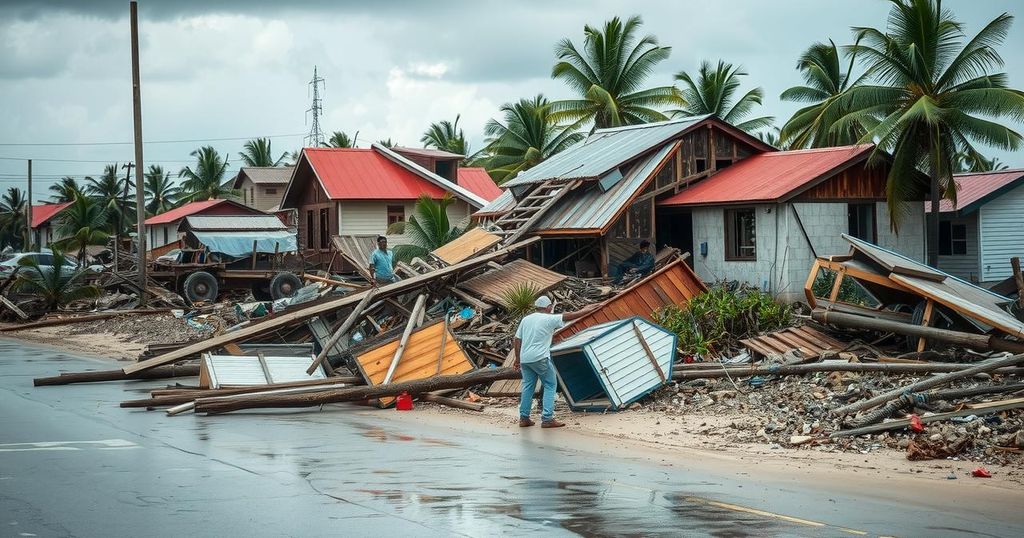Cyclone Chido: Widespread Devastation in Mayotte and Mozambique

Cyclone Chido devastated Mayotte and Mozambique, causing widespread destruction and threatening the lives of millions. The storm, linked to climate change, caused severe infrastructure damage, complicating rescue efforts. Humanitarian organizations are mobilizing aid, but the presence of undocumented residents poses challenges to assessing and addressing the calamity.
Cyclone Chido ravaged the region of Mayotte on December 15, 2023, resulting in catastrophic damage, particularly to shantytowns and critical infrastructure such as the local airport. The storm, exacerbated by rising temperatures in the Indian Ocean, has been linked to the broader impacts of climate change. Authorities face significant challenges in rescue and recovery efforts due to power, water, and communication outages, raising concerns about the potential death toll, which could reach into the thousands. After striking Mayotte, Cyclone Chido continued its destructive path into Mozambique, amplifying the devastation in the region and putting approximately 1.7 million individuals at risk, as warned by the United Nations Office for the Coordination of Humanitarian Affairs (UN OCHA). In response to the crisis, European Union chief Ursula von der Leyen and the World Health Organization (WHO) have committed to providing humanitarian aid, although the presence of approximately 100,000 undocumented residents complicates the situation and hinders the comprehensive assessment of the damage.
Cyclone Chido represents a significant climate event that has affected the southeastern region of Africa, particularly during the cyclone season when such storms are expected. The increasing frequency and intensity of cyclones have been correlated with climate change, as warmer ocean waters provide more energy for storms. The infrastructure in regions like Mayotte and Mozambique is often ill-equipped to withstand such extreme weather conditions, resulting in devastating socio-economic impacts. Additionally, the complexities introduced by undocumented populations further complicate relief efforts, necessitating coordinated responses from local and international organizations to mitigate the crisis effectively.
In conclusion, Cyclone Chido has caused extensive damage in Mayotte and Mozambique, with potential long-term implications for the affected populations. The immediate need for humanitarian assistance is critical, as the regional infrastructure struggles to cope with the aftermath of the cyclone. It is imperative for international bodies to collaborate effectively to address the humanitarian crisis while also engaging in discussions around climate resilience and adaptation to mitigate future disasters resulting from climate change.
Original Source: m.economictimes.com








